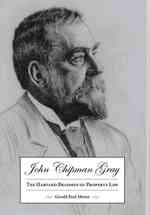- ホーム
- > 洋書
- > ドイツ書
- > Humanities, Arts & Music
- > Philosophy
Full Description
This book provides a critical survey of Western political philosophy from a classical liberal perspective, paying particular attention to knowledge problems and the problem of political authority. Its central argument is that the state is a tool for solving a historically changing set of problems, and that, as a tool, the state is frequently deficient on both moral and practical grounds. Government action can be considered as a response to a set of problems, all of which may conceivably be solved in some other manner as well. The book examines in particular the relationship between the state and technology over time. Technological developments may make the state more or less necessary over time, which is a consideration that is relatively new in the history of political philosophy, but increasingly important. The book is organized chronologically and concludes with an essay on trends in the history of political philosophy, as well as its surprisingly bright prospects for future development.
Contents
ContentsEpigraphsIntroductionToo-Brief History of Political Theory 1. The Ancient State and the Myth of Marathon 2. The Ancient Dissenters 3. Christianity and the City of Man: From Retreat to Reform 4. The March of the State in the Early Modern World 5. The Social Contractarians: Can an Agreement Specify What Government is For? 6. The Modern Omnipotent State Part II: Toward a New Theory of the State 7. The Structures of Political Theory 8. The State Is a Bundle 9. Some Objections to the Theory 10. The Falsification of State Action 11. Advancing Technology Demands Intellectual Modesty 12. On Trade as a Central Feature of Society BibliographyIndex








